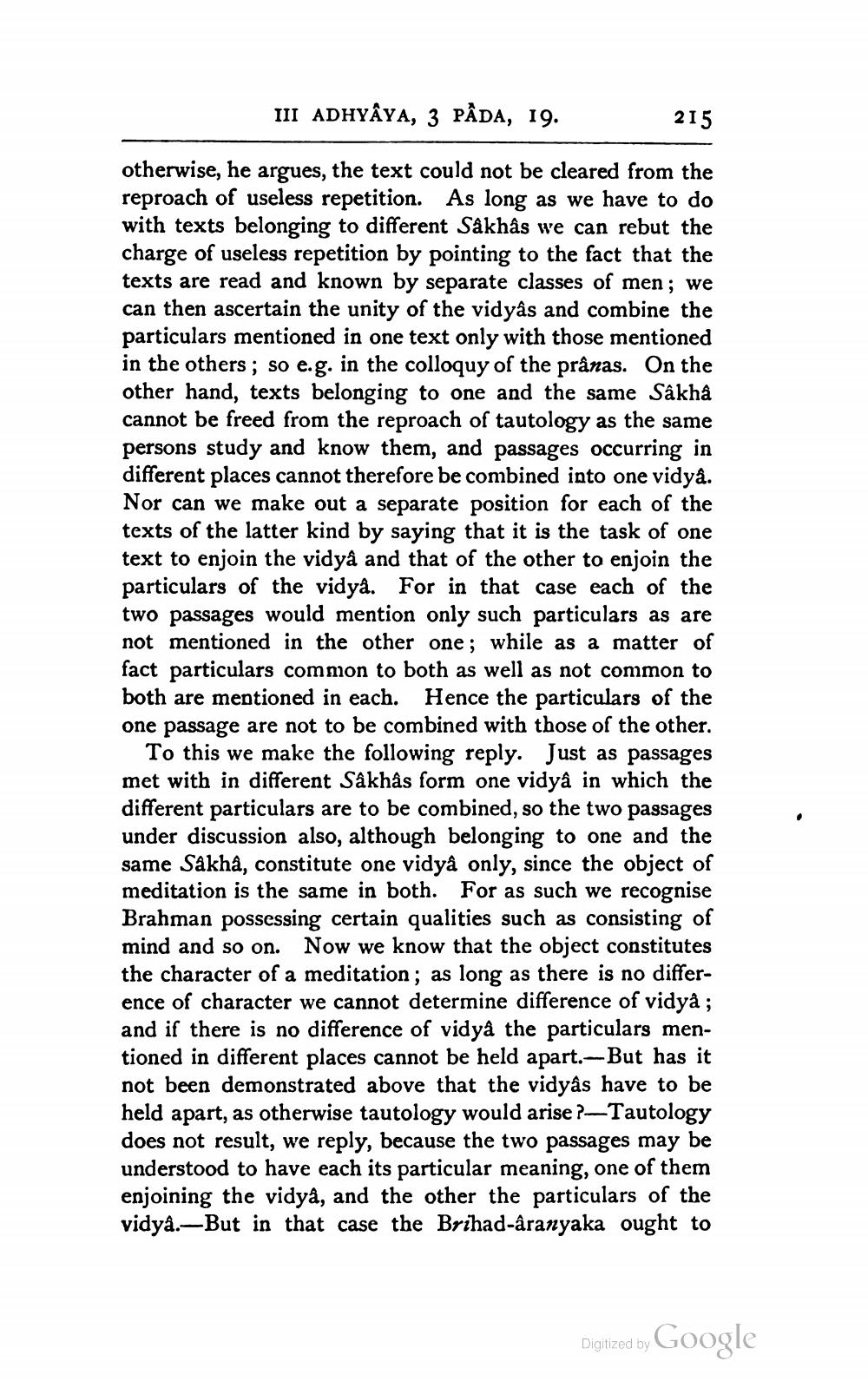________________
III ADHYAYA, 3 PÂDA, 19.
215
otherwise, he argues, the text could not be cleared from the reproach of useless repetition. As long as we have to do with texts belonging to different Sakhâs we can rebut the charge of useless repetition by pointing to the fact that the texts are read and known by separate classes of men; we can then ascertain the unity of the vidyâs and combine the particulars mentioned in one text only with those mentioned in the others; so e.g. in the colloquy of the prânas. On the other hand, texts belonging to one and the same Sâkhả cannot be freed from the reproach of tautology as the same persons study and know them, and passages occurring in different places cannot therefore be combined into one vidya. Nor can we make out a separate position for each of the texts of the latter kind by saying that it is the task of one text to enjoin the vidyâ and that of the other to enjoin the particulars of the vidya. For in that case each of the two passages would mention only such particulars as are not mentioned in the other one; while as a matter of fact particulars common to both as well as not common to both are mentioned in each. Hence the particulars of the one passage are not to be combined with those of the other.
To this we make the following reply. Just as passages met with in different Sâkhâs form one vidyâ in which the different particulars are to be combined, so the two passages under discussion also, although belonging to one and the same Sakha, constitute one vidyå only, since the object of meditation is the same in both. For as such we recognise Brahman possessing certain qualities such as consisting of mind and so on. Now we know that the object constitutes the character of a meditation; as long as there is no difference of character we cannot determine difference of vidyâ; and if there is no difference of vidya the particulars mentioned in different places cannot be held apart. But has it not been demonstrated above that the vidyâs have to be held apart, as otherwise tautology would arise ?–Tautology does not result, we reply, because the two passages may be understood to have each its particular meaning, one of them enjoining the vidya, and the other the particulars of the vidya.—But in that case the Brihad-aranyaka ought to
Digitized by Google




